Spotlights
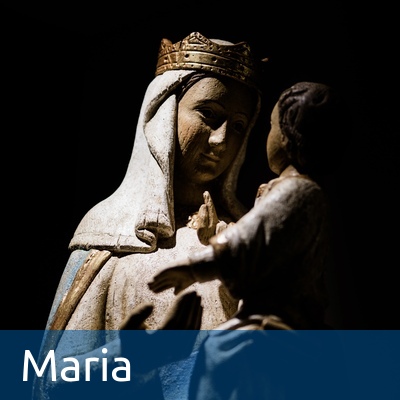
Mary – our example
We have Mary as a model because we want to learn from her since we can come closer to Jesus through the Mother of God. Mary teaches us a way of devotion and listening to God's word. At the same time, she is a woman with both feet planted firmly in real life - with problems that could also be ours. She shows us how to build on God in our daily lives in every situation.
Our Lady had many profound and also painful experiences in her life and yet, against all odds, she remained faithfully at her Son's side until the end. Together with Mary, we believe that death and evil do not have the last word and that they can be overcome through faith in Jesus. This loyal faith that Mary teaches us strengthens and encourages us. It gives us hope that God is always at our side, no matter what.
Since Mary trusted God with all her heart, the Holy Spirit was able to fill her. If we imitate her, the Holy Spirit will also fill us and help us renew our faith in this world with His power.

The Catholic church – Catholic means universal.
The Catholic church’s name is also its program. The adjective “catholic” is derived from the Greek kat'holos, which means ‘universal’, ‘all-embracing’, ‘concerning all’. This is precisely the claim of the Church, which it inherited and adopted from its sole founder, Jesus Christ. Both in the Apostles' Creed and in the Nicene Creed, we profess faith in this same Catholic Church.
The Church has the task of bringing the good news of the Gospel and God's saving work to people through the sacraments – that means everywhere, everyone, no matter when, where, or in what circumstances they were born and live. This can be read quite clearly in many places in the Holy Scriptures, since Jesus himself took care of precisely those people who were marginalized, and he did not withhold or even withdraw his salvation and healing from anyone. In the same way, his church, which he founded with his ascension, is to work and have an all-embracing effect in the course of time in as many places as possible, because he wants that his grace reaches every soul.
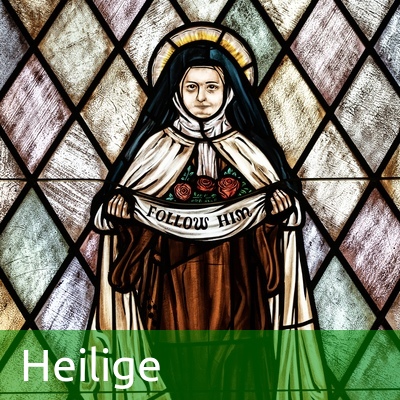
Veneration of saints – a connection to the communion of saints
As Catholic Christians, we venerate the saints who preceded us in many ways; they have already passed through their earthly lives and are now proven to be able to behold God's face in eternity. For one, we ask for their intercession because they are closer to God, know human needs and wants well, and are therefore suitable friends to bring our requests before God. At the same time, we commemorate their deeds and achievements during their life on earth, since these reflect their spiritual maturity, and we can gain much wisdom from them. The many different saints of all times are so varied that an inspiring and real-life example can be found for every situation and challenge in life to help us through these situations.
The saints are also part of the Church of Christ, his mystical body, and are intimately connected with us on a spiritual level. We can learn much from them in terms of their teaching and example, as well as through the graces they can ask for us. As we journey through this world, it is helpful and comforting to look to the example of the saints and to realize that we are not alone, and that sanctification and perfection are possible. They can refresh our hope in the life to come and strengthen us in our times of testing.
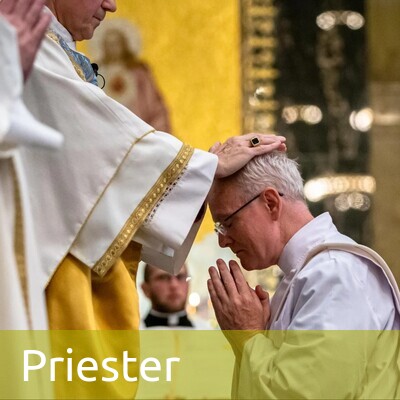
Ordination of priests – men serving for God
According to Catholic teaching, only men can be ordained priests. This does not mean that women are valued any less. In Christianity, women and men have equal dignity before God at all times. Despite their equal value, they have different abilities and talents because of their gender and thus fulfill different tasks in society and the church.
At the Lord's Supper, Jesus called only men to be priests, which is why the priestly profession has been reserved for men only since the beginning of the Church. Surely it was not due to the circumstances of that time that Jesus did not ordain women as priests. Jesus never shied away from controversy throughout his life. He already set different standards in his dealings with women. His circle of disciples included many women whom he appreciated very much. And it was a woman, Mary Magdalene, who was the first to witness Jesus' resurrection.
Jesus thus deliberately assigned equal but different roles to men and women. Thus, the two sexes complement each other in their service in the Church, in which they perform different tasks, but always with the common goal of igniting the love of God in the hearts of all people.
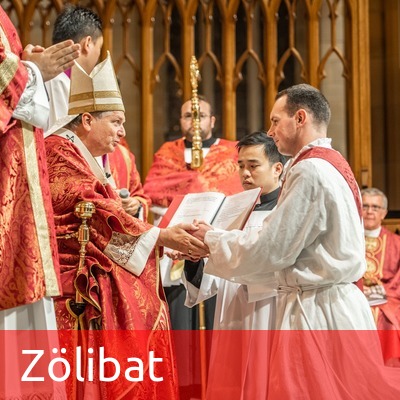
Celibacy – undivided love for God
Celibacy is the voluntary commitment to live celibate for the sake of the Kingdom of Heaven, i.e., to give one's life completely to God. In the Catholic Church, it is mainly people in religious orders and members of the priesthood who live celibate lives.
The model for this lifestyle is Jesus himself, who expressed his undivided love for God, among other things, through his celibate life. Not being bound to a particular person creates great freedom. Celibate people can put all their attention and energy into their service to believers. Thus, a celibate person becomes fruitful in a very different way than in a marriage: it is a spiritual fruitfulness, which is the foundation of every church. The celibate person shows by his perfect discipleship that he is not only concerned with some office or worldly profession, but with a vocation that he consistently witnesses with his lifestyle.
Celibacy is the heartfelt yes to God and connected with it to the belief that there is an afterlife in which no more marriages exist, but every person experiences his absolute happiness through the presence of God in heaven.
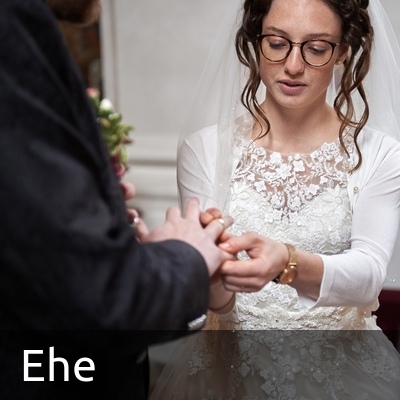
Catholic marriage – love that’s all in
According to Catholic understanding, marriage is a lifelong covenant between a man and a woman. The goal of this covenant is the mutual welfare of the spouses and the upbringing of their common children.
Catholic marriage is meant to represent the covenant between Jesus and His Church. Just as Jesus will be unconditionally faithful to his Church at all times, so too should the two spouses be faithful to each other, no matter what. In this way, marriage becomes a space where a person can be who he or she is without fear that his or her partner will one day leave him or her because of it. It is only through this security that we are able to develop our personality.
Every person feels in himself the longing for an exclusive, reliable partnership – emotionally as well as physically. Marriage elevates sexuality to a precious gift that the two spouses can give to each other. it is a creative act which can bring forth a child, a child who finds a secure home with his parents for life.
In this way, Catholic marriage forms the basis on which love can be lived fruitfully with mind and body in mutual respect.
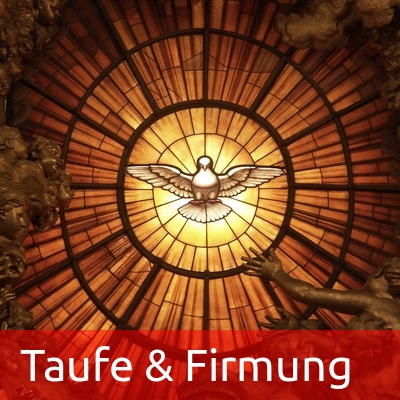
Baptism and confirmation – new life in Christ
Baptism and Confirmation are called sacraments. Sacraments are signs of salvation that Jesus instituted in His Church. Baptism establishes membership in the Church of Jesus Christ at the beginning of Christian life.
It is the way out of the realm of death into life, that is, permanent communion with God. In baptism we become members of the Body of Christ: it unites us with Jesus Christ, frees us from sin, and resurrects us with Him to eternal life. Through the gift of baptism, God accepts us without any preconditions.
For all who know the Gospel and have heard that Christ is “the way and the truth and the life” (John 14:6), baptism is the only way to God and thus to salvation.
In baptism, a person makes a covenant with God, which each person must seal by saying YES of his or her own free will. In infant baptism, the parents confess the faith vicariously.
The gift of baptism received by the newborn is to be accepted by them, when they become adults, in a free and responsible way. In the Sacrament of Confirmation, Baptism is completed by the confirmand's own yes, which he or she gives on his or her own responsibility, and the gift of the Holy Spirit is received, as it was already given to the Apostles on the Day of Pentecost. The outward sign of Confirmation is the laying on of hands and the anointing with chrism.
Whoever asks for God's Spirit in Confirmation receives the power to testify to God's love and power in word and deed and is now considered a full, responsible member of the Catholic Church.
While Baptism integrates a person into the community of faith, Confirmation strengthens him on his way.
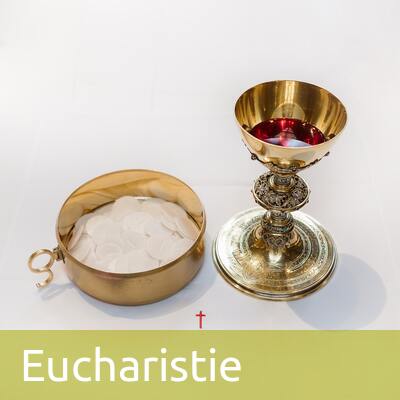
Eucharist – Source of Life (or: Satisfying Hunger)
After Baptism and Confirmation, the Eucharist is the third sacrament of initiation of the Catholic Church.
It is the mysterious center of all these sacraments and the core of the Christian community. In it, the Church becomes the Church, for it is here that Jesus' historic sacrifice on the cross becomes present in a hidden way during the consecration. According to Catholic understanding, Christ is mysteriously but truly present in the Eucharist. By partaking of the body and blood of Christ under the outward appearance of bread and wine, we unite ourselves personally with Christ. The celebration of the Eucharist is “the source and summit of the whole Christian life” (Second Vatican Council {LG} 11).
The Catholic Church did not invent the rite. Jesus himself celebrated the Last Supper with his disciples; here he gave himself to his disciples and invited them to celebrate the Eucharist from then on and beyond his death.
The Eucharist is the true sacrifice of the New Covenant. In the celebration of the Eucharist, the “bloodless realization of the sacrifice of the cross” takes place. With their devotion and the offering of the gifts (i.e., the “sacrifice of the Mass” (bread and wine)) the faithful bring themselves into the sacrifice of Christ. The offerers (=the faithful) eat the offering as a sign of their willingness to adopt the same disposition as Christ, to live for God, indeed, to let Christ himself live in them, who gave himself for them.
It is the Church's belief that in every celebration of the Eucharist, Christ himself is actually acting. This means that priests are not merely acting in the place of or on behalf of Christ, but that by virtue of their ordination, it is Christ Himself who is acting through them at that moment as Head of the Church.
Since it is in the celebration of the Eucharist that we unite ourselves to Christ Himself, the celebration of Mass represents for Christians the “heart of the week” and the most important appointment of the week. Just as one cultivates a regular relationship with a person one loves, so Catholics cultivate their living relationship with Christ in the celebration of Mass.
Holy Communion is an expression of the unity of the Body of Christ. Those who are baptized into the Catholic Church, share its faith, live in unity with it, and belong to it. It would therefore be a contradiction in terms if the Church were to invite to Communion people who do not (yet) share the faith and life of the Church.
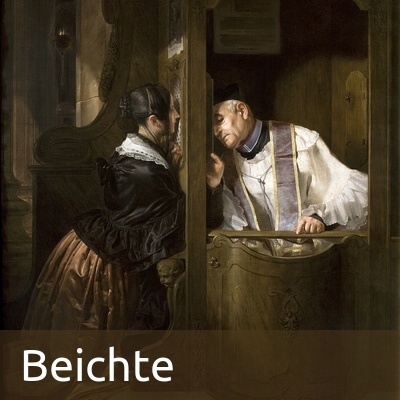
Confession – Reconciliation and a New Beginning
Through baptism, we are snatched from the power of sin and death, but it does not free us from human weakness and the inclination to sin. Therefore, we need a place where we are reconciled to God again and again: in Confession.
God is merciful and He desires nothing more than that we also avail ourselves of this mercy and repent. The Sacrament of Confession is one of the greatest graces, because through it we may begin anew, accepted in love and provided with new strength.
Jesus himself established the Sacrament of Penance when he said to his disciples on Easter Day: “Receive the Holy Spirit! Whose sins you forgive, they are forgiven; whose sins you deny, they are denied.” (John 20:22b-23) All confession involves examination of conscience, contrition, resolution, confession, and penance. The prerequisite for the forgiveness of sins is that the person truly repents and that the priest absolves him in the name of God.
God alone can forgive sins, but He wants us to state our sins and confess them face to face, so confession is made before the Lord in the presence of a person who is commissioned to do so. These are primarily the bishops and then his assistants, the ordained priests.
The Catholic Church strongly encourages the faithful to go to confession at least once a year (before Easter). A monthly confession is recommended. However, in order to receive Holy Communion, it is a prerequisite to confess beforehand, should one have committed a serious sin.
In the Sacrament of Penance, a person takes responsibility for his own actions and opens himself anew to God and to the community of the Church. Within the framework of the examination of conscience, this sacrament helps us to work on ourselves and our relationship with God and thus to become better people.
Further information: Youth Catechism of the Catholic Church (YOUCAT) and the Catechism of the Catholic Church
Further information: Youth Catechism of the Catholic Church (YOUCAT) and the Catechism of the Catholic Church. Good arguments in question-answer format can also be found in the "Katholisch im Kreuzfeuer" series by Servi Jesu et Mariae (https://www.sjm-online.org/downloads)